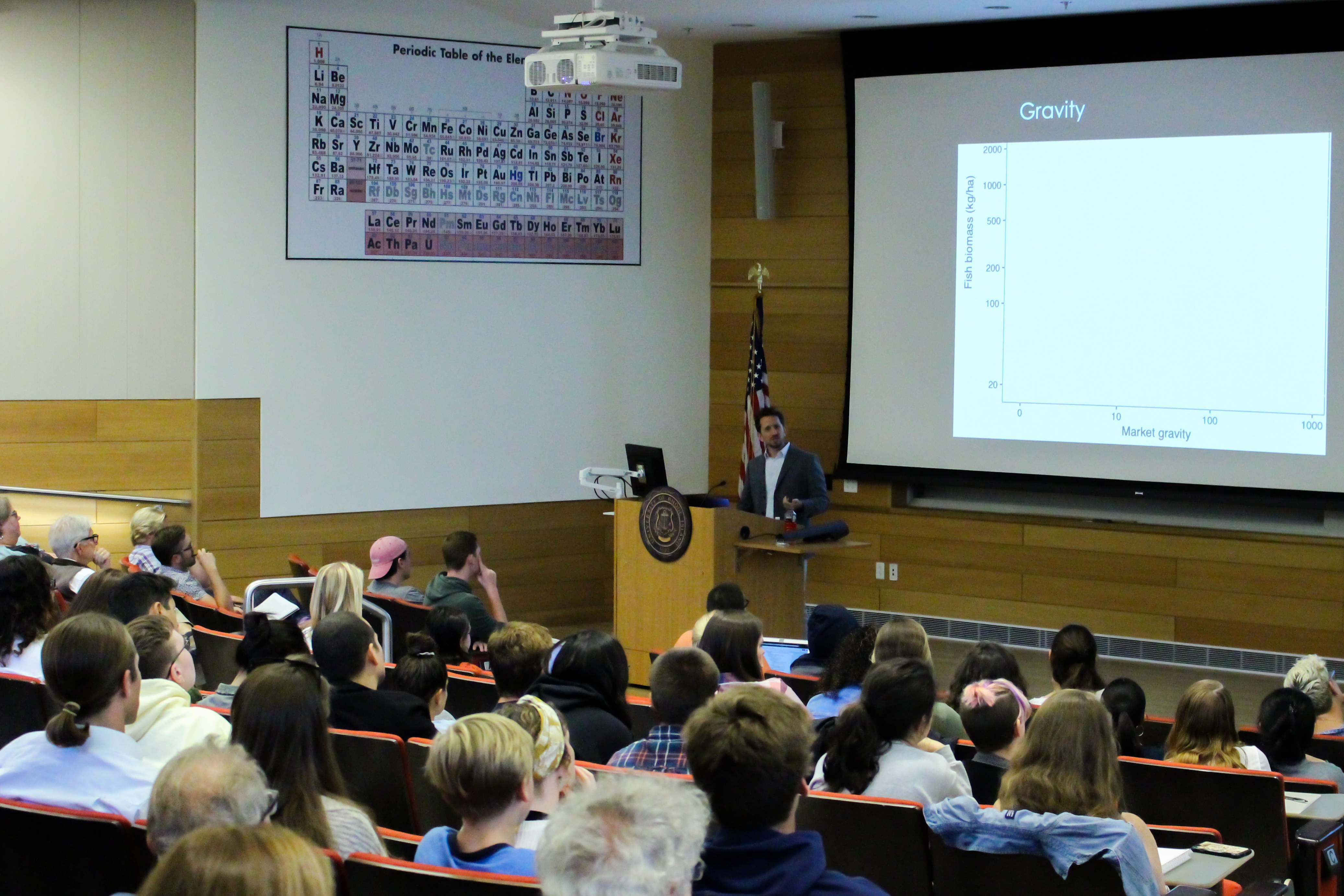Dr. Joshua Cinner discusses the actions that harm coral reefs all over the world and how we can protect
Distinguished International Scholar Discusses bright spots on coral reefs
In the first Distinguished Visiting International Scholar event of the year, University of Rhode Island Marine Affairs program alumnus Dr. Joshua Cinner discusses how coral bright spots can be used as models of ecological success in threatened ecosystems.
With a background in ecology, Cinner uses his experience to tackle complex social issues intertwined within coastal communities. Cinner is from the Australian Research Council Center for Excellence for Coral Reef Studies at James Cook University in Australia.
“Millions of people depend on the beauty and bounty of coral reefs for their livelihoods, and I know that Rhode Island is a long way away from the nearest coral reef, but what happens on coral reefs should concern everyone, especially in the Ocean State,” said Cinner.
According to Cinner, the world’s reefs are in trouble, plagued from overfishing, pollution and climate change, and they are being destroyed at a rapid pace. The traditional way of conservation is to find a spot far from mankind’s embrace and designate it as a protected site.
“Conservation actions are also sorely needed where human impacts are already severe,” said Cinner. “This is going to require thinking quite differently about conservation.”
Cinner has begun doing just that. Using a statistical program, his team identified outliers in data collected from just under 7,000 coral reefs. Two groups of outliers were identified: areas where reefs should have been doing poor, but were in fact thriving, known as coral bright spots, and dark spots, areas where a reef should be succeeding but instead was severely damaged.
Cinner has used these bright spots as a classroom, learning what successful management and cultural strategies are being used to preserve the reefs. The bright spots tended to have deepwater refuges, an area where fish can dive down deep and avoid intense fishing pressure, while dark spots often recently experienced an ecological tragedy, such as a cyclone or intense coral bleaching event.
Bright spots also used less invasive methods of fishing such as spear or line fishing, instead of nets, while also being highly dependent on fisheries for their livelihood. This need of consistency has created unique ways to manage local coral reefs.
One such place is in Papua New Guinea, and after working with two communities there, he found that they employ a rotational system to manage the reef.
“This is a kin to fallow agriculture, they close an area off for a while, then they move it and fish that, and then that ones closed so they switch that and the areas are closed for no set time,” said Cinner.
This rotational pressure allows fish stocks to recover, while also making the fish easier to hunt with spears. It was determined that after a closure the fish allow spearmen to get on average three feet closer, making it easier to capture.
The method of looking at case samples of successful bright spots offers new insights in managing coral reefs, and it is hoped that the cultural methods will be translated well between different conservation approaches.
This talk, and others like it, are hosted by the Office of the Provost as part of the Distinguished Visiting International Scholar program.
“The goals of this program is to demonstrate URI’s commitment to research and scholarship, engage with campus community, strengthen emphasis on global learning and discover, build international collaborations and enhance the reputability of URI around the country and the world,” said Gifty Ako-Adounvo, the vice provost for Global Initiatives.





